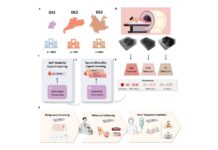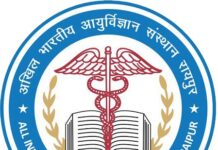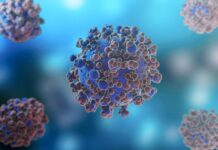Interview with Dr M S Reddy, MD (Psychiatry)
Depression: What General Physicians Must Know


Depression has become a major mental health problem worldwide and in India too. It is one of the main causes of suicide.
In this exclusive interview to The Indian Practitioner, Dr Reddy discusses the growing menace of depression in India and how general physicians, in particular, can effectively play their role in dealing with cases of depression.
The Indian Practitioner (TIP): The graveness of depression as an illness has been glaringly brought to the fore with a top Mumbai cop having allegedly committed suicide out of extreme depression just recently. How severe do you estimate the problem to be in India today, and what challenges does it present?
Dr MS Reddy (MSR): Depression is one of the common health conditions affecting about 30 crore (300 million) people worldwide according to World Health Organization. It can cause the affected person to suffer greatly and function poorly at work and at home. At its worst, it can lead to suicide. Close to 8 lakh people commit suicide ever year. Suicide is one of the leading causes of death in 15-29 year olds.
India has one of the highest suicide rates in the world. Challenges in identifying and managing depression are due to:
- Stigma related to psychological problems,
- Lack of psychological and medical professionals (especially in the rural India) and
- Lack of awareness of the severity or frequent occurrence of depression.
TIP: What medical conditions are prominently linked with depression and how does a typical case of depression present to the general physician?
MSR: Depression is commonly associated with chronic medical conditions which need regular care either due to complications or chronic pain. Some of the common medical conditions are:
- Neurological: epilepsy, stroke, Parkinson’s disease, dementia, and multiple sclerosis
- Diabetes, HIV/AIDS, rheumatoid arthritis, systemic lupus erythematosus, coronary artery disease, cancer.
A typical case of depression presenting to a GP: Middle aged adult with chronic multiple vague somatic symptoms (especially pain) which persist even after analgesic use. Lab investigations are within normal limits. Dysfunction seems disproportionate to the symptoms and there are problems with treatment compliance.
Such cases usually are unhappy or do not improve with trials of multiple medication regimens and frequently change doctors. But when enquired into their mood state or social functioning, depressive features like low mood, irritability, insomnia, ideas of hopelessness and suicide, and low socialization become apparent.
Depression may also present to a general physician in various other ways like:
- Insomnia
- Vague and generalised somatic symptoms like fibromyalgia
- Frequent non-adherence to treatment of chronic medical conditions like diabetes, hypertension
- Substance use problems
- Palpitations and anxiety with no cardiac reason
TIP: How does depression link with suicide? Any warning signs that could help predict (and thus pre-empt) suicidal behaviour in patients with depression?
MSR: Many cases of suicide, except where the attempt is impulsive, are related to depression. There is a logical flow of events from the depressed mood to an ideation of suicide. We should look out for suicidal ideas or behaviour in every case of depression.
Chain of events: thoughts of hopelessness or helplessness lead to passive suicidal wishes. Later, if the depression is not managed, active thoughts of suicide and lowered fear of death lead to attempts of suicide. Based on the stage of the thought process, the decision to hospitalize or referral to a mental health professional have to be taken.
Extremes of age (i.e. less than 19 or more than 45), presence of previous attempt, psychotic symptoms like delusions or hallucinations, excessive substance use, lack of social support, deliberation of an organized plan in interview, chronic illnesses are some of the factors which should be taken as warning signs for predicting the risk of suicide. Risk assessment can be done using a simple tool called SAD PERSONS scale, which categorizes suicidal individuals into high or low risk groups and suggests specific kinds of care e.g. If score is more than 8, to consider hospitalization and in-patient mental health care. (link – http://www.emed.ie/Psychiatry/Sad_Persons.php)
TIP: Please discuss how a general physician in his/her limited capacity can diagnose and medically manage a patient of depression (Also include dosages of medications). Also, at what point is medication warranted for depression and when should specialist referral be considered?
MSR: Patient Health Questionnaire (PHQ-9) is a standard screening tool for depression which can be part of the assessment to identify if there is a suspicion of depression. It has 9 questions and takes less than 5 minutes to administer. Medication is warranted when the depressive symptoms are causing disability (approximately PHQ-9 score 15 or more) in daily functioning like sleep, appetite, study or work for more than a week.
The common, efficacious, and well tolerated anti-depressants used are called Selective Serotonin Reuptake Inhibitors (SSRIs). Though there are many of them, two common ones are escitalopram and sertraline. These need not be changed with medical co-morbidities as they have minimal or no drug interaction and no significant side-effects apart from gastritis in few people in the first week. Escitalopram can be started at 5mg at night and increased by 5mg every week till 20mg per day and adequate duration of treatment is about 10 to 12 weeks before GP decides to change medication.
The circumstances which may necessitate referral to a specialist are:
a) Persistence of symptoms even after using above mentioned medication
b) Need for other interventions like counseling, rTMS or ECT. These are required when medication alone is not helping, presence of suicidality or when patient requests for them.
c) Severity of symptoms which require hospitalization like aggression, suicidal ideas etc
TIP: Today, as mental illnesses such as depression are increasingly gaining recognition among the lay public as being worthy of urgent medical attention, how important do you reckon is the role of a general physician in handling mental illnesses such as depression and acting as a link to the specialist?
MSR: General physicians are in a strategic position to identify depression early and manage or refer to specialists. As depression worsens treatment outcomes of general medical conditions, it should be dealt by the general physicians in a proper way.
Awareness about depression, early identification and initial management are the three main aspects where general physicians make a lot of impact. GPs should feel confident in using the antidepressants mentioned above, as these are easy to titrate and well tolerated by most people.
TIP: Please comment on the scope and importance of pro-active detection of cases in dealing with depression.
MSR: Pro-active detection of cases can be done in regular intervals in a group of people seeking treatment for medical diseases or as part of community screening in specific groups like school or college students, employees of an organization or a specific geographic community like slums, tribal groups etc. Periodic screening associated with awareness programmes can help in early detection.
Screening of depression when done should be with valid tools like PHQ-9 questionnaire. It is better done in people with clinical suspicion of depression. Early identification and management helps prevent disability and early return to functioning.
TIP: What systemic measures do you think are needed in India today to combat mental illnesses such as depression?
MSR: Systemic measures needed in India to address these issues are:
- Awareness programs to reduce the societal stigma and facilitate access to care
- Strengthening public healthcare system with training of general physicians with necessary and minimal psychiatric knowledge
- Recruiting teachers, employers and paramedical professionals for screening and early identification of depression.
Excerpt from June 2018

























